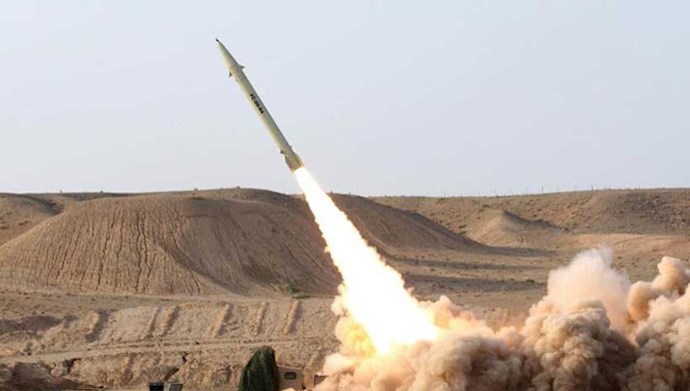Reporting by PMOI/MEK
Iran, April 2, 2021—There’s growing concern among politicians about the Iranian regime’s provocative behavior and its continued disregard for its commitments under the nuclear accord. But there’s little consensus on how to address it. And past attempts at addressing Iran’s nuclear program through concessions and disregard for its other malign behavior have failed. And this is why there’s not much appetite for a swift return to the 2015 accord that put a temporary cap on Iran’s nuclear program.
“Iran’s nuclear escalations and its burgeoning ballistic missiles program are major threats. But much more troubling is Iran’s ballistic behavior,” American political scientist Walid Phares writes in a column in Modern Diplomacy on March 31.
The Iranian regime’s destructive measures span across four Middle East countries, including Yemen, Iraq, Lebanon, and Syria. In all four countries, the Iranian regime is exerting control and influence through proxy groups that have been spreading strife and chaos.
“[The] Iranian regime is effectively involved in the quasi occupation of four Arab countries. All this means that there cannot be a swift return to an ‘Iran deal’ without addressing the regime’s regional ambitions and destructive meddling, which have resulted in instability for Europeans and American interests alike,” Phares writes, adding that a hasty return to the 2015 nuclear deal without taking into consideration of the geopolitical implications and costs will have undesirable consequences.
While the nuclear accord, officially known at the Joint Comprehensive Plan of Action (JCPOA), had been forged to promote peace and reduce regional and global tensions, its limited scope resulted in anything but. The Iranian regime effectively took advantage of the bonanza offered by the deal to further bolster its ballistic missile program, pursue its expansionist goals in the region, and fund terrorist groups in the Middle East and across the globe, all malicious activities that were overlooked in the JCPOA.
“Are there not important destabilizing factors that must be urgently addressed, including the deployment of ballistic missiles in the region, the preponderance of Iranian proxies in strategic hotspots, and persistent deadly attacks against Western allies in the region?” Phares writes and adds that the security of the Middle East should be an important factor in any potential talks with the Iranian regime.
In his article, Phares makes four recommendations for addressing the multitude threats posed by the Iranian regime:
- Regional security must be at the top of any list of topics to be discussed with the regime
- Iran’s ballistic missile program cannot be overlooked, especially since the regime is exporting its weapons to countries in the region
- Countries of the region that are impacted by the regime’s malign behavior must be part of any discussion about Iran
- The international community must engage with the Iranian opposition
“For the past three years, hundreds of thousands of Iranian citizens have loudly protested the ruling regime and its policies. There is another image of Iran that the world needs to acknowledge and engage,” Phares writes. “When dealing with the multilateral and strategic threats emanating from the Iranian regime, it is only natural to engage with the organized Iranian non-violent resistance, including representatives from the Iran protests and exiled leaders, particularly the very active National Council of Resistance of Iran (NCRI), and to hear their voices during any negotiation with Tehran.”





